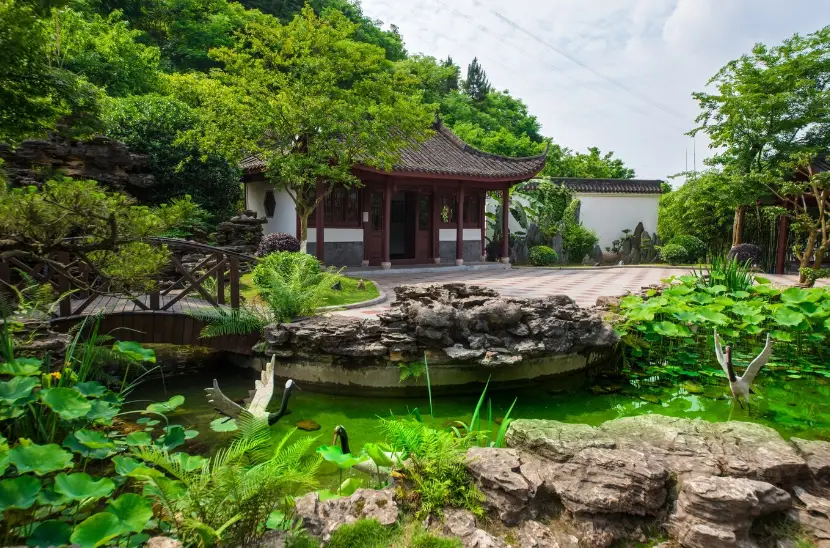Harmonizing Nature and Serenity with Zen Garden Designs

Zen gardens, also known as Japanese rock gardens or dry landscapes, are renowned for their minimalist design and profound spiritual significance. Originating in Japan and rooted in Zen Buddhism, these tranquil spaces are meticulously crafted to evoke a sense of harmony, simplicity, and contemplation, allowing people to cultivate a deep connection with nature and foster inner peace amidst the chaos of the modern world.
Here is a guide on how to incorporate Zen principles in your garden design.
Principles of Zen Garden Design
The design principles of Zen gardens are guided by the concept of “wabi-sabi”—embracing imperfection, simplicity, and transience. Central to Zen garden design is the careful placement of rocks, gravel, sand, and minimal vegetation to create serene compositions that evoke natural landscapes, such as mountains, rivers, and seas. Balance, asymmetry, and negative space are essential elements that contribute to the overall tranquility and aesthetic appeal of Zen gardens.
Elements of Zen Gardens
Zen gardens typically feature several key elements, each serving a specific purpose in promoting mindfulness and contemplation. Large landscaping rocks symbolize mountains or islands—representing strength, stability, and endurance; gravel or sand raked into patterns mimic the ripples of water or flowing streams—encouraging meditation and reflection; moss, ferns, and carefully pruned trees add subtle touches of greenery—infusing the garden with life and vitality.
Creating Serenity Through Design
The careful arrangement of elements in Zen gardens is intended to evoke a sense of serenity and tranquility, inviting visitors to slow down and engage in contemplation. The rhythmic patterns of raked gravel or sand simulate the ebb and flow of nature, creating a meditative atmosphere conducive to mindfulness and self-reflection. By harmonizing natural elements with meticulous design, Zen gardens offer respite from the hustle and bustle of everyday life, promoting mental clarity and emotional well-being.
Cultivating Mindfulness in Zen Gardens
Beyond their aesthetic beauty, Zen gardens serve as powerful tools for cultivating mindfulness and awareness. As visitors engage with the garden through walking meditation or quiet observation, they are encouraged to let go of distractions and connect with the present moment. The simplicity and purity of Zen garden design inspire introspection, which helps foster a deeper understanding of oneself and the interconnectedness of everything around us.
Adapting Zen Garden Principles
While traditional Zen gardens are deeply rooted in Japanese culture and philosophy, their principles can be adapted to suit various landscapes and contexts. Whether in urban courtyards, residential backyards, or public parks, the essence of Zen garden design lies in creating spaces that nurture a sense of harmony, balance, and tranquility. By embracing simplicity, natural materials, and mindful arrangement, designers can evoke the timeless beauty and serenity of Zen gardens in a range of diverse settings.
Conclusion
Zen garden designs offer a timeless expression of harmony and serenity, blending natural elements with contemplative spaces to create environments that nourish the soul. Through meticulous attention to detail and a deep reverence for nature, Zen gardens inspire introspection, mindfulness, and a profound sense of connection to the world around us. Whether as sacred sanctuaries or peaceful retreats, these tranquil landscapes continue to captivate and inspire individuals seeking solace and inner peace amidst the chaos of modern life.
